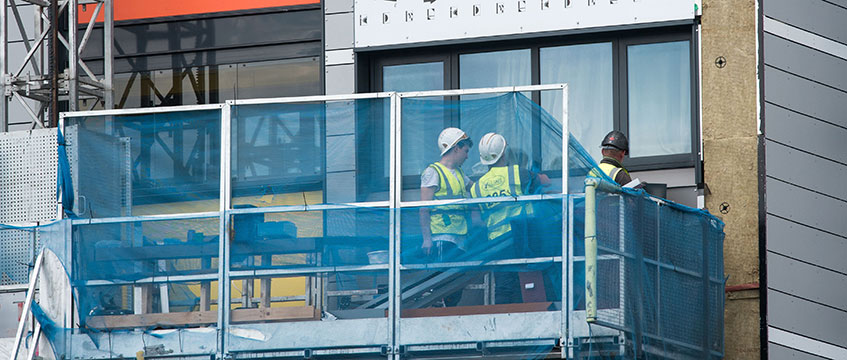Build-to-rent developers and investors have won a reprieve from a £2bn developer tax, following extensive engagement with the housing minister, Department of Levelling Up, Housing and Communities, and the Treasury.
Industry leaders and the British Property Federation had campaigned against the inclusion of BTR in the Residential Property Developer Tax, which they claimed would be “unfair and nonsensical”.
The tax on developer profit is set to come into force next April to raise money for cladding remediation.
Industry experts, including the BPF, were told of the exemption on 8 October, with formal acknowledgement provided this week.
The exclusion in the draft legislation is based on the requirement for property to be held in a trading account. If this were to include BTR, it would require additional clauses, which the industry has been told will not happen.
Ed Crockett, head of residential investment at Aberdeen Standard Investments, said: “It is a defining moment for the BTR sector that came together over a wide range of disciplines to clearly explain to the government the challenges and impact of including BTR in the legislation.
“It is a credit to the ministers that they took those comments on board and responded appropriately and is in stark contrast to the second home surcharge debacle, where the sector was caught napping.”
Housing secretary Christopher Pincher is understood to have been influential in the engagements. Pincher has previously spoken publicly in support of the industry, stating: “It is clear to me that there is real growth potential in it for investors, developers and builders.”
Investor confidence
Industry figures said the uncertainty over whether BTR would be exempt had risked investor sentiment.
Ian Fletcher, director of real estate policy at the BPF, said: “This would have had tangible impacts, but that tangible impact on confidence would have been quite hard. I hope this gives the sector a little more confidence that the government does appreciate it and does understand what it’s about.”
Fletcher added that BTR’s inclusion would have been complex and “ultimately harmed a lot of its objectives as well”. “Government over the past 12 months has tried to illustrate that it does not support greenfield development and to push more homes into cities and brownfield development,” he said. “We have the perfect product for that.”
Former housing secretary Robert Jenrick announced the tax in February, saying it would “make the industry pay for the faults of the past”.
However, BTR experts consistently argued the tax would be a dry tax on a notional profit that does not exist, given that landlords retain assets to rent.
BTR owners pay for their own remediation and further taxation could restrict viability, preventing some development and reducing the sector’s affordable housing contribution.
Note of caution
As the sector celebrates, it is also preparing for the technical response on the RPDT due this week. There are still questions around private investment in affordable housing and whether this will also be excluded.
Simon Tatford, tax director at Quintain, said: “Government is still of the view that there is a valid argument for BTR to be in the scope of the tax, but it hasn’t found the right way of doing it yet.”
Tatford said he was encouraged by the fact that departments had listened to the sector but he stressed any changes down the line “risk undoing the work we have done in terms of professionalising the sector”.
He said: “There is still a way to go in terms of hopefully educating the government more widely about the benefits of BTR, the quality of rented accommodation we are providing. If we over-tax [BTR investors] or tax them in a way that adds complexity and uncertainty, other investors won’t join the industry.”
Kurt Mueller, director of corporate affairs at Grainger, said the government had engaged “despite very challenging timescales”, and said the industry had presented a united front.
Mueller said: “As an industry, we’ve learned an important lesson from the RPDT, which is not to take for granted that everyone understands BTR and our business model. Now, more than ever, we need to redouble our efforts to educate national policy makers, local government and even renters on what BTR is all about.”
To send feedback, e-mail emma.rosser@eg.co.uk or tweet @EmmaARosser or @EGPropertyNews











